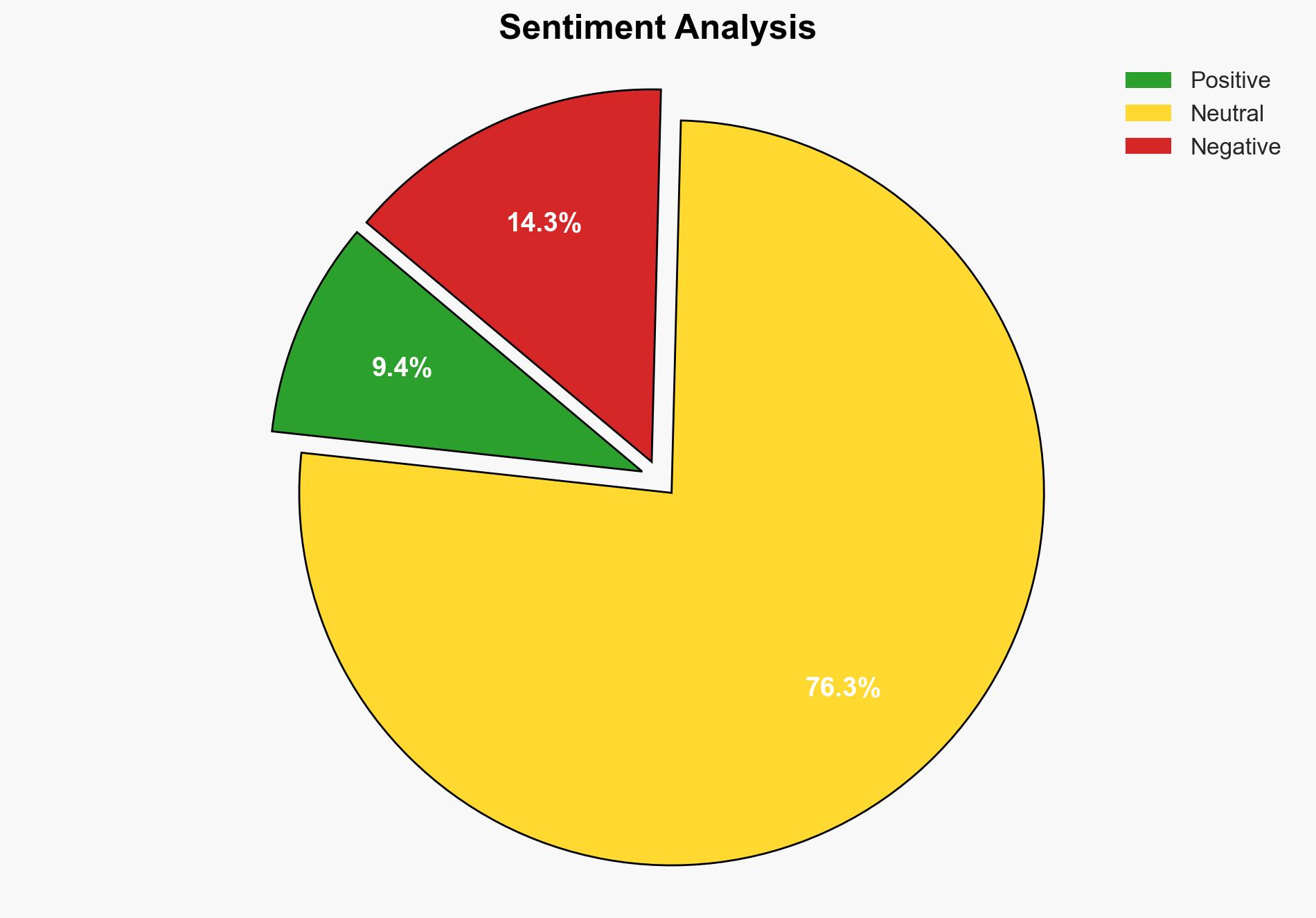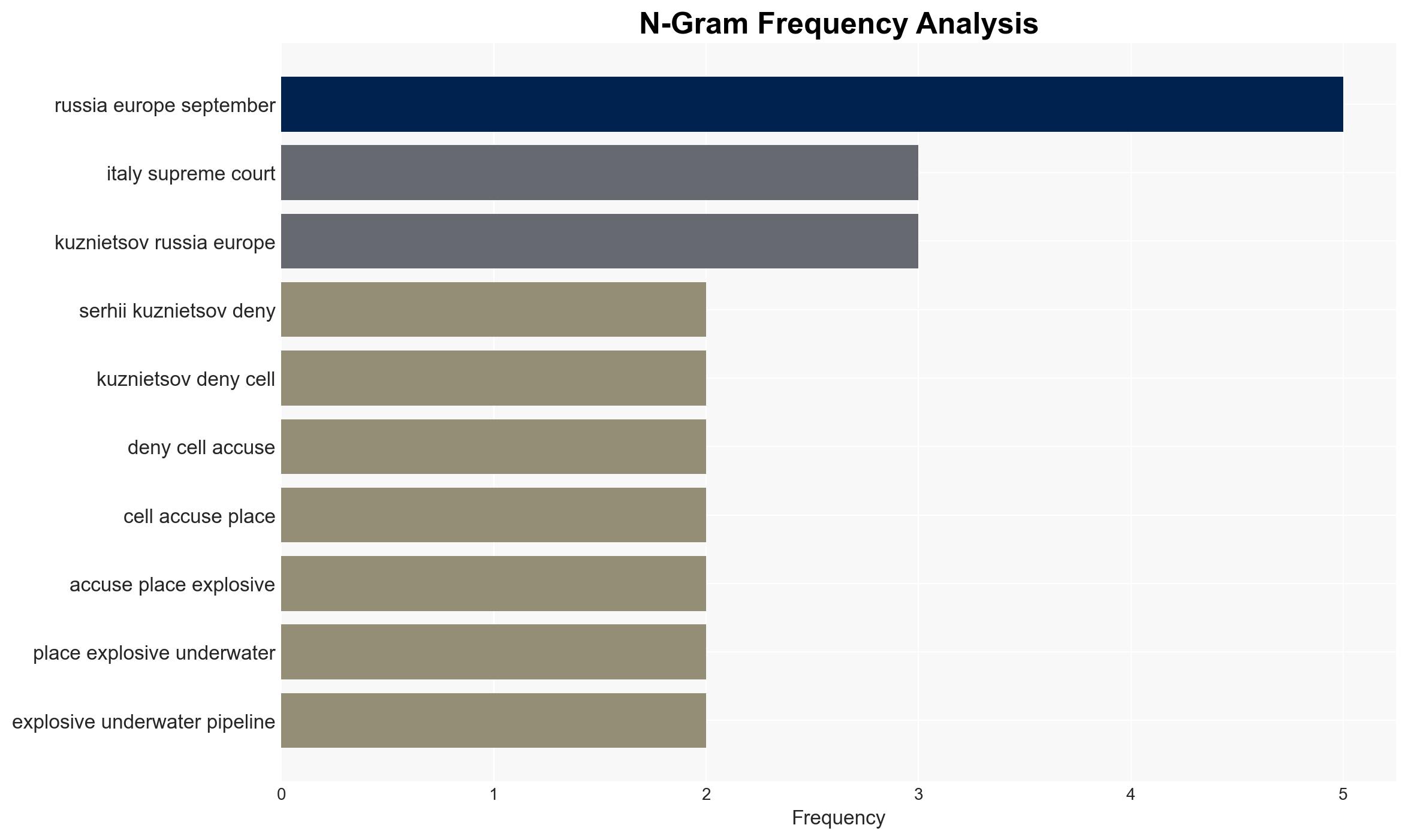Italy allows extradition of Ukrainian suspect in Nord Sea pipeline sabotage – EURACTIV
Published on: 2025-11-20
AI-powered OSINT brief from verified open sources. Automated NLP signal extraction with human verification. See our Methodology and Why WorldWideWatchers.
Intelligence Report:
1. BLUF (Bottom Line Up Front)
With a moderate confidence level, the most supported hypothesis is that the extradition of Serhii Kuznietsov to Germany is part of a broader effort to address international concerns over energy infrastructure security and to hold accountable those involved in the Nord Stream pipeline sabotage. Recommended action includes enhancing international cooperation on energy security and monitoring legal proceedings for potential geopolitical implications.
2. Competing Hypotheses
Hypothesis 1: The extradition of Serhii Kuznietsov is a legitimate legal process aimed at prosecuting individuals responsible for the Nord Stream pipeline sabotage, reflecting international cooperation in addressing transnational crimes.
Hypothesis 2: The extradition is politically motivated, potentially serving as a tool for Germany and its allies to exert pressure on Ukraine amidst ongoing geopolitical tensions with Russia.
Hypothesis 1 is more likely due to the structured legal proceedings and the involvement of multiple countries’ judicial systems, which suggests a focus on legal accountability rather than political maneuvering.
3. Key Assumptions and Red Flags
Assumptions: The legal systems involved are operating independently of political influence; the extradition process is based on credible evidence linking Kuznietsov to the sabotage.
Red Flags: Potential bias in the legal proceedings due to geopolitical pressures; lack of transparency in the evidence presented against Kuznietsov.
Deception Indicators: Discrepancies in Kuznietsov’s defense claims and the evidence provided by German prosecutors.
4. Implications and Strategic Risks
The extradition could strain Ukraine’s relations with its European allies if perceived as politically motivated. It may also escalate tensions between Russia and Europe, impacting energy security and economic stability. The case could serve as a precedent for handling similar incidents, influencing international legal and diplomatic protocols.
5. Recommendations and Outlook
- Enhance intelligence sharing and cooperation on energy infrastructure security among European nations.
- Monitor the legal proceedings for signs of political influence or bias.
- Engage in diplomatic dialogues to mitigate potential geopolitical tensions arising from the case.
- Best-case scenario: The legal process concludes transparently, reinforcing international legal norms and cooperation.
- Worst-case scenario: The case exacerbates geopolitical tensions, leading to economic and political instability in the region.
- Most-likely scenario: The extradition proceeds with limited geopolitical fallout, but ongoing vigilance is required to manage potential risks.
6. Key Individuals and Entities
Serhii Kuznietsov, Nicola Canestrini (defense lawyer), German prosecutors.
7. Thematic Tags
Structured Analytic Techniques Applied
- Cognitive Bias Stress Test: Expose and correct potential biases in assessments through red-teaming and structured challenge.
- Bayesian Scenario Modeling: Use probabilistic forecasting for conflict trajectories or escalation likelihood.
- Network Influence Mapping: Map relationships between state and non-state actors for impact estimation.
Explore more:
National Security Threats Briefs ·
Daily Summary ·
Support us





